Iranian Hunger Striker In London Finally Invited To Foreign Office
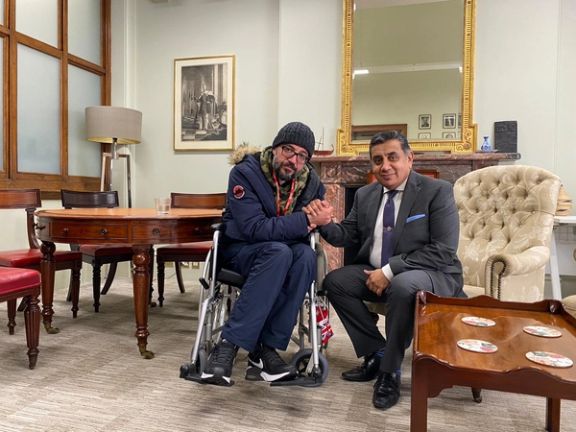
The Iranian hunger striker demanding the proscription of the IRGC was invited to the British Foreign Office on the 62nd day of his protest action.

The Iranian hunger striker demanding the proscription of the IRGC was invited to the British Foreign Office on the 62nd day of his protest action.
Vahid Beheshti has been on a hunger strike in London since February 23 outside the UK Foreign Office to raise awareness for the need to designate the Iranian Islamic Revolutionary Guards Corps (IRGC).
On Tuesday, Beheshti was invited to the Foreign Office in central London, where he is camped, to speak to Tariq Ahmad, Minister of State for the Middle East, North Africa, and South Asia.
“We discussed the UK’s sanctioning of four more IRGC Commanders yesterday, and the importance of taking further steps and actually proscribing the IRGC as a terrorist organization,” Beheshti wrote in a tweet.
He urged that sanctioning individuals who do not leave Iran is not an effective means of stopping the IRGC’s terrorist activities.
Having survived 62 days on water, coffee, and sugar cubes, 45-year-old Vahid Beheshti can no longer walk.
Last week, a group of 125 British MPs signed a letter backing Beheshti’s calls.
Several countries including the UK and EU have been cautious to designate the IRGC for fear it will further alienate the regime and in turn, limit negotiating capacity regarding its nuclear program.
In December, members of the UK House of Commons unanimously voted for a motion that urges the government to proscribe the IRGC, but it has split the House.
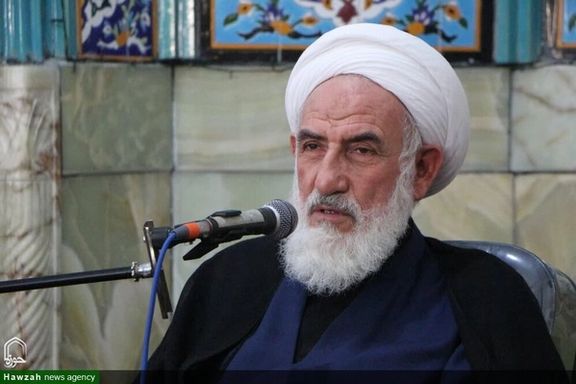
A former Khamenei aid associated with the mass executions of the 1980s has been assassinated in the northern city of Babolsar.
Ayatollah Abbas-Ali Soleimani, the former representative of the Supreme Leader in Sistan and Baluchistan province and Kashan, was gunned down in Mazandaran province, according to the Hozeh website on Wednesday.
Soleimani's son confirmed his father’s death though said he does not know the details of the armed attack yet.
An eyewitness told Hozeh website that the cleric was sitting in a bank when the assailant grabbed the gun of the guard and opened fire. Reports say three others were also injured.
Soleimani's body being carried out of the building where he was killed
The attacker was reportedly arrested by the security forces. The assailant was reportedly one of the bank’s guards, identified only as Habibian.
The hardliner cleric was twice a member of Iran’s Assembly of Experts. As Friday prayers imam of Babolsar, he allegedly participated in the mass executions in the 1980s.
He wrote in his autobiography that he was appointed the Friday prayer imam of Babolsar so that he could confront opposition groups activities there. During his term, he also supervised the judicial system in Babolsar.
The moment the gunman opens fire
The executions in the 1980s were carried out based on a fatwa by Iran's then-supreme leader, Ruhollah Khomeini, against the MEK which carried out a wave of bombings in Iran and struck an alliance with Saddam Hussein during the 1980-88 war.
Most victims were linked to the MEK but there were also others with links to leftist and secular groups such as Fadaiyan Khalq Organization (FKO) and Tudeh Party as well as some Kurdish groups, such as Komala and the Kurdish Democratic Party of Iran.
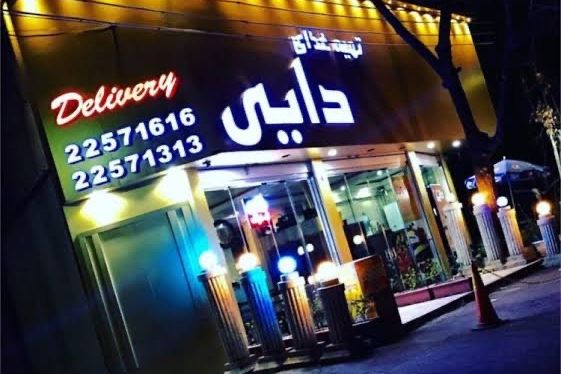
Authorities in Iran stepped up their campaign against the mass hijab rebellion, warning to shut down several businesses belonging to celebrities and footballers.
Lists of celebrities targeted for not enforcing hijab laws were published by Revolutionary Guards (IRGC) media, Tasnim and Fars, the latest crackdown on famous names who have also been punished by bank account freezes, travel bans, pay cuts and communications shutdowns.
Some of those named include restaurants and cafes belonging to football legend Ali Daei, actress Bahareh Rahnama, actor Mohammad Golzar, footballer Karim Bagheri and football coach Alireza Mansourian, all in the capital Tehran.
Fars has run several campaigns against those refusing to wear the compulsory Islamic headscarf in restaurants and shopping centers in the past few months and urged the authorities to shut them down.
Tasnim also said Baccarat Lounge, a restaurant owned by the national soccer team coach Amir Ghalenoei has already been shut down because its staff did not abide by the hijab rules.
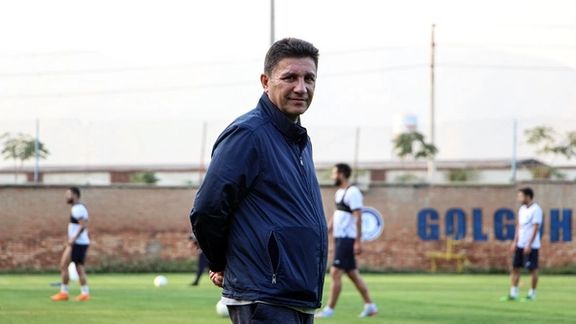
In its report, Tasnim claimed that “all citizens” appreciate and support authorities’ actions against infringers and that no exception was being made for celebrities who have become a legitimate and powerful voice for the protesters.
A few hours later, Tasnim reported that one of the capital’s newest shopping malls, Opal Mall, was shut down because its board of directors had ignored “repeated warnings” to prevent uncovered women from entering the mall.
A wave of Iranian sports and cinema celebrities have used their social media accounts to voice their support for the protests that began in mid-September following the death of a 22-year-old girl, Mahsa (Jina) Amini in the custody of morality police.
Amini was arrested for what the authorities deemed ‘inappropriate’ wearing of the hijab. Since then, the hijab rebellion has grown to levels too worrying for the religious and political establishment who consider defiance of the hijab equal to defiance of the regime itself.

Some outspoken celebrities including actress Taraneh Alidoosti and Katayoun Riahi were arrested or came under various pressures including foreign travel ban during the protests.
Riahi, 61, was the first among Iranian female artists to express her solidarity with the Mahsa Movement by sharing her photo without a veil on Instagram. “Iranian women are each other’s voices,” she said in her post.
The police said Monday that Riahi, who was put on trial in January for supporting the protests, and Pantea Bahram, who recently attended an event unveiled, have been indicted for hijab defiance.
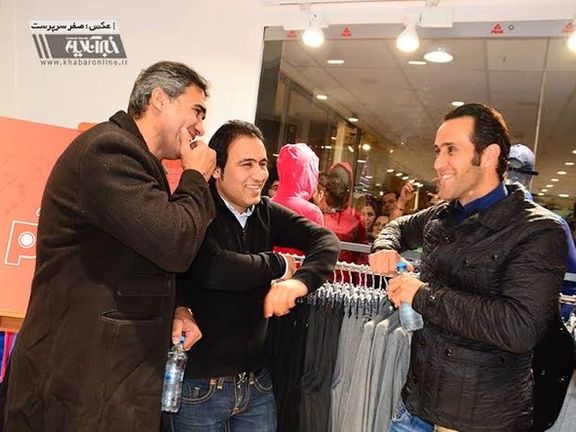
Daei and other legendary soccer players including Mehdi Mahdavi-Kia, Karim Bagheri, Ahmad Reza Abedzadeh, and others who supported the protest movement have also been subjected to similar pressures.
In December authorities forced a Dubai-bound Mahan Airlines plane to land in its Kish Island to prevent Daei’s family from leaving the country. Daei is a hero for Iranians as he was an international soccer legend and the captain of the national team from 2000-2006 whose record of 109 international goals was broken only 2021 by Cristiano Ronaldo.
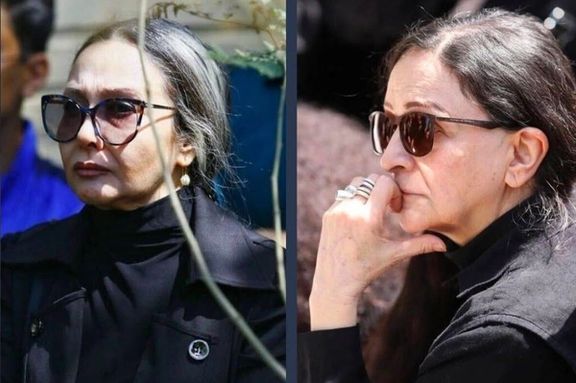
Many other artists and athletes, including popular Golab Adineh and Fatemeh Motamed-Aria have also refused to wear the hijab in public and published photos of themselves without the hijab on social media. The regime feels if they do not crack down on such defiance, it will create an unstoppable wave amongst society.
At the start of the month, Supreme Leader Ali Khamenei reiterated the regime's stance on hijab, which became mandatory after the start of the regime in 1979. He said: “Discarding hijab is haram based on Sharia and also politically." His declaration was a clear signal to authorities that they need to do anything it takes to re-establish control over women and re-impose the hijab rules.
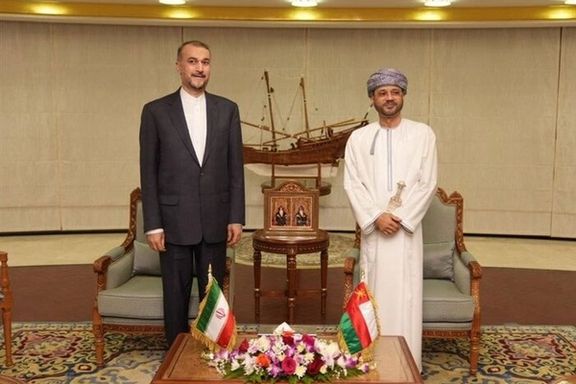
Iran’s foreign minister Hossein Amir-Abdollahian during a visit to Oman has discussed the conflict in Yemen and the status of Iran’s nuclear talks with the West.
Iran’s official news agency IRNA reported Wednesday that Amir-Abdollahian met with Oman’s foreign minister Sayyid Badr Albusaidi and thanked him for mediation efforts by Sultan Haitham bin Tariq and the government of Oman “for their positive role” in JCPOA nuclear talks.
IRNA quoted Amir-Abdollahian as saying, “In addition to issues relating to expanding relations, I discussed regional issues with my Omani counterpart, as well as international problems, such as Palestine, Yemeni reconciliation and the situation in Sudan.”
IRNA commented that Oman has played an important role in Iran’s nuclear talks, “exchange of prisoners between Iran and the West”, and contacts between Iran and Saudi Arabia.
Oman has long played a mediating role between Tehran and Washington. First contacts in 2013 to launch nuclear talks were facilitated by Oman.
Meanwhile, Russian foreign minister Sergei Lavrov visiting the United Nations in New York, told reporters during a news conference on Tuesday that the revival of the JCPOA nuclear deal does not depend on Russia, China or Iran, indirectly accusing the United States for freezing talks.
The European Union presented a compromise agreement draft to Iran and Western powers last August, after 18 months of talks, but the United States accused Iran of stonewalling and presenting “extraneous” demands. In October, Washington said it is not focused on the talks any longer, demanding that Iran stop weapons supplies to Russia, among other things.
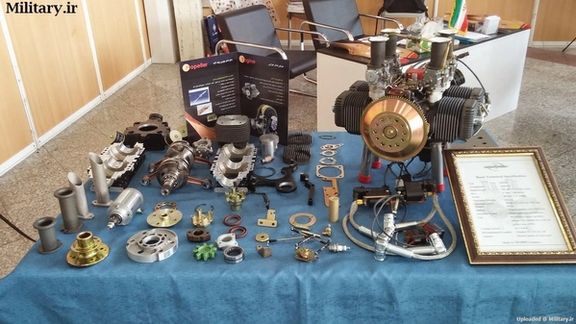
Two years since Myanmar’s military coup, widespread violence continues to escalate across the country, with growing indications and accusations of Iranian support to the junta.
Myanmar has been plagued by conflict and instability for decades. The country is home to multiple ethnic groups, many of which have been in conflict with the government. The situation has been further complicated when on Feb. 1, 2021, the Myanmar military, or Tatmadaw, deposed the democratically elected government led by the National League for Democracy.
The coup triggered countrywide protests that were followed by a crackdown leaving hundreds of civilians dead and several thousand detained.
As resistance to the junta continues, international research organizations, including the Center for Strategic and International Studies, have been suggesting that the Myanmar military has deployed a fleet of Chinese-made unmanned aerial vehicles to identify and locate potential targets.
Chinese drones have been used by the Myanmar military since 2015 to support counterinsurgency operations in the country’s restive north. But the unrest following the 2021 coup has increased demand for their use and for their spare parts, especially engines, which are widely believed to have been purchased from Iran.
“The engines were requested shortly after the coup, because some of the drones were showing the signs of wear and tear ... All the talks were with the Iranians,” Capt. Nyin Nyin Wai, a Myanmar army defector, told Iran International.
He said “there was a lot of back and forth” in the talks and it took a long time until the engines were delivered, but before leaving the military in December 2022, he saw documents confirming that Iranian parts had been ordered.
“I was in the meetings, and I saw the papers,” he said. “It was MD550.”
The MD550 is a drone engine that is reverse-engineered from a prototype designed in the 1980s by the German company Limbach.
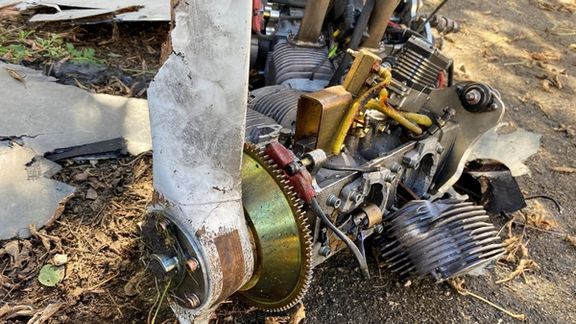
The Washington DC-based Wisconsin Project on Nuclear Arms Control and the US watchdog United Against Nuclear Iran believe it is produced by Iranian manufacturer Oje Parvaz Mado Nafar Company or MADO.
“It’s a strong claim. There are several credible sources,” UANI research director Daniel Roth told Iran International.
“It’s a little confusing because the original engine is made by Limbach (the L550E), and the MD550 is described as a ‘Chinese copy.’ The collected evidence suggests that it’s now probably made by both China and Iran — but mainly Iran.”
A January report by UANI, an analysis of the Iranian National Aerospace Exhibition showed photographs of the MD550 engine being displayed at the show in Tehran in 2012 — a year after MADO was established.
The company has been subject to US sanctions since October 2021.
According to the former army captain Nyin, the MD550 engines were supplied as replacement parts to the Myanmar Air Force, and repairs were conducted in the Meiktila Air Base Park in the Mandalay area of the country’s north.
It is unclear when exactly the first engines reached Myanmar from Iran, but early last year, data from flight tracker Flightradar24 showed Fars Air Qeshm — an Iranian cargo airline sanctioned by the US for carrying weapons and fighters to Syria — flying to Yangon from Mashhad, Iran’s second-largest city.
Since then, increased drone activity has been reported in the areas of Myanmar where the anti-junta opposition has been concentrated.
“Surveillance drones are used to learn where to target next,” Nyin said. “The focus was on Karen State, Sagaing Division, Mandalay area, Bago region.”
Rights activist Nicky Diamond from the Southeast Asia-based NGO Fortify Rights has experienced first-hand the surveillance drones flying in the mountainous areas of the eastern Karen State in March and June 2021.
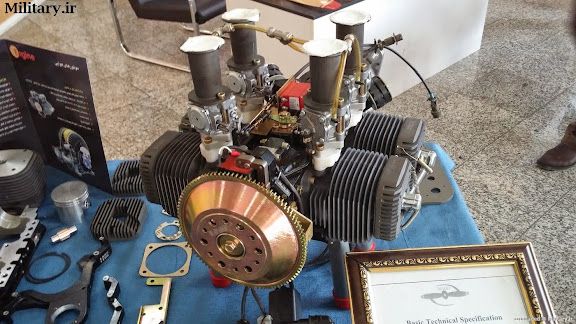
“China’s weapons and Iranian supplies are instrumental in oppressing revolutionary forces on the ground,” he said.
“Iran is under international sanctions, and it’s concerning that they are able to supply drones ... It’s a reminder that we need to do more to prevent the flow of weapons to conflict zones ... The issue of drone supply from Iran to Myanmar is a cause for concern and must be addressed to ensure the safety and security of the people.”
The situation in Myanmar is complex, and the Iranian regime’s support for the Myanmar junta is just one of the many issues that complicate it further, with the potential to make the already volatile circumstances even more dangerous.
Myanmar’s government in exile, the National Unity Government, has been raising concerns about the junta’s ties with Iran, as likely to further destabilize the country and lead to more violence.
“We are aware of the military relations between Iran and Myanmar military junta since the coup,” Naing Htoo Aung, spokesperson of the NUG Ministry of Defense, told Iran International.
“Myanmar military’s campaign of terror against its citizens is being aided by a country like Iran, which not only makes the Iranian army or government accomplice but also poses a threat to regional and international security.”
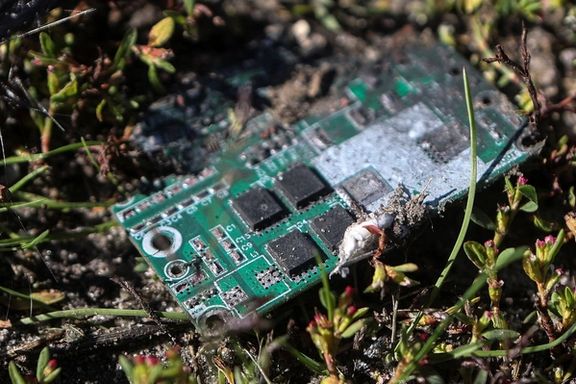
As the situation in Myanmar continues to deteriorate, the international community faces a difficult decision on how to respond to the junta’s actions. Until now, however, the UN has not imposed a binding arms embargo on Myanmar, despite calls from rights groups and the government in exile.
Special Envoy of the UN Secretary-General on Myanmar Noeleen Heyzer briefed the UN General Assembly on the situation on March 16, saying that the “violence continues at an alarming scale” and that “heavy fighting has spread to areas previously unaffected by conflict, putting more civilian lives at risk and further complicating humanitarian operations delivering lifesaving assistance.”
Heyzer said that 17.6 million people — about a third of the country’s population — are in need of humanitarian assistance, more than 1.6 million are internally displaced.
“Arms embargo to Myanmar military junta would be ideal to deter the junta’s killing of innocent citizens,” Naing Htoo Aung said.
“If arms embargo is not possible, then the UN and international community should seek to provide effective support to the resistance side to help them defend their lives.”
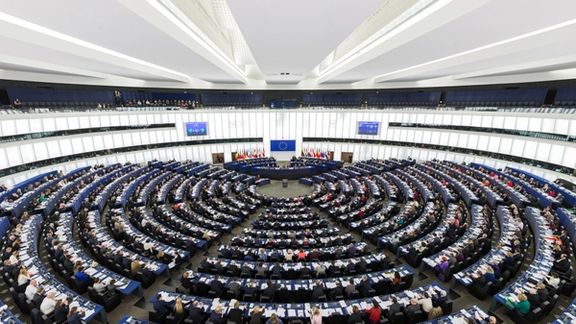
The European Parliament is holding a three-day event in solidarity with the Iranian people in their struggle against the Islamic Republic for freedom and democracy.
The first day of the European Parliament Solidarity Days was held on Tuesday jointly by the Subcommittee on Human Rights and the Committee on Foreign Affairs in coordination with the European Parliament's Delegation for Relations with Iran to exchange views on "How to support Human Rights, Freedom and Democracy in Iran".
Udo Bullmann, Chair of the Subcommittee on Human Rights, said during the session, “We stand in full solidarity with the courageous people of Iran who risk their lives by taking the streets and speaking out for freedom and justice again, and again and again. We must not and will not let them down. Tyranny will not win. We stand up for dignity, democracy and human rights, we stand with the people of Iran.”
European lawmakers say the event’s objective is to explore ways to support human rights, women, and civil society in Iran with a large spectrum of Iranian guest speakers, and to reflect on challenges and prospects for Iran's democratic movement. However, the list of the speakers on the first day drew controversial reactions online as some of the participants were labeled as regime apologists by some social media users.
Women's rights activist and writer Mansoureh Shojaee, journalist Mahdieh Golroo, Sociology of Gender Researcher Fatameh Karimi, and former political prisoner Sattar Rahmani as well as Ardeshir Amirarjomand, a senior advisor to dissident former prime minister Mir-Hossein Mousavi – were some of the speakers.
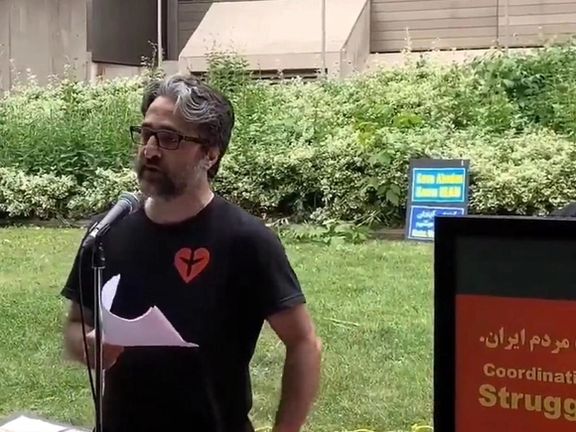
Also among the participants was Canada-based opposition figure Hamed Esmaeilion, whose recent resignation from the Alliance for Freedom and Democracy in Iran has sparked bitter arguments between constitutional monarchists and his supporters.
He told Iran International after the session that he focused his remarks on how to help “the Iranian revolution” on three main topics: providing uncensored internet, helping the affected families and protesters – free or detained -- inside the country, and setting up a fund to support striking workers.
He added that the designation of Iran’s Revolutionary Guards as a terrorist organization was also among the topics discussed during the session. Blacklisting the IRGC has been one of the main demands of the Iranian opposition as it is the regime’s hand in cracking down on dissent inside the country and handling Tehran’s proxy wars across the region.
One of the main hosts of the event is Cornelia Ernst, the chair of the European Parliament's Delegation for Relations with Iran, which has maintained a regular dialogue with the Islamic Republic’s parliament and its mandate is to further promote dialogue and “mutual understanding” with the Iranian parliament. Such a mandate seems to be against the Women, Life, Liberty movement, which has engulfed Iran since September 2022, when the death in custody of Mahsa Amini sparked the protests against the regime.
However, Ernst voiced opposition sanctioning the IRGC, expressing concerns that the designation would cut off relations and dialogue with the Islamic Republic and may pave the way for the regime to become another North Korea, which the European Union does not want.
Hanna Neumann, the representative of Germany in the European Parliament who has been very active in supporting the Iranian protest movement especially since September 2022, also spoke during the session. She said the protests and the ensuing crackdown have shed light on the atrocities of the regime.
“Thanks to the protests, everyone knows now how brutal this regime is, how it is beating, raping, executing its own people,” she said, noting that “it is quite clear that the regime is impossible to reform and that it is a big threat to its own people, to the region and to the world as a whole.”
Other MEPs also called for the freedom of hundreds of political prisoners, especially women, marginalized minorities, and torture survivors.
They also reiterated their call for the EU to add the IRGC to its list of terrorist organizations, three months after a plenary resolution adopted on January 19, 2023.